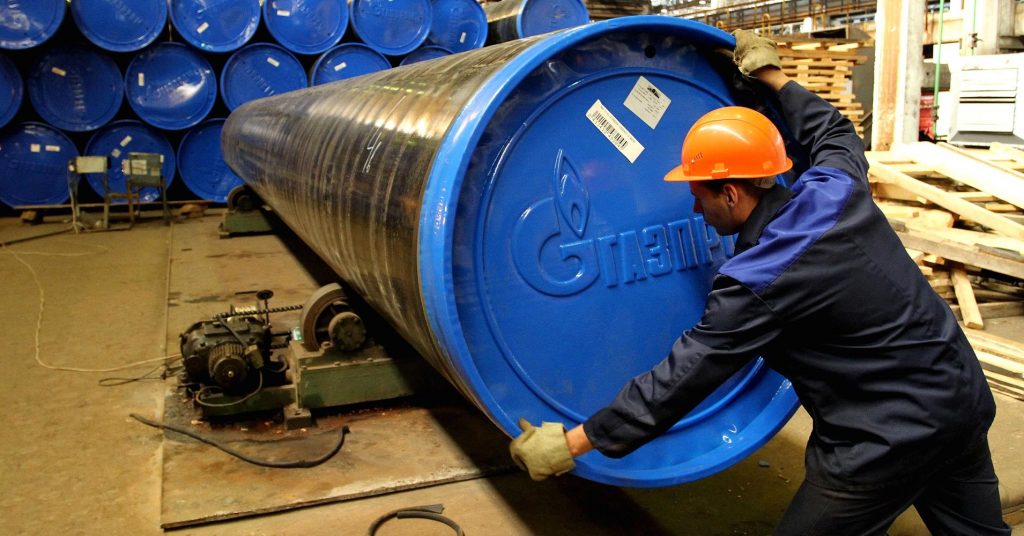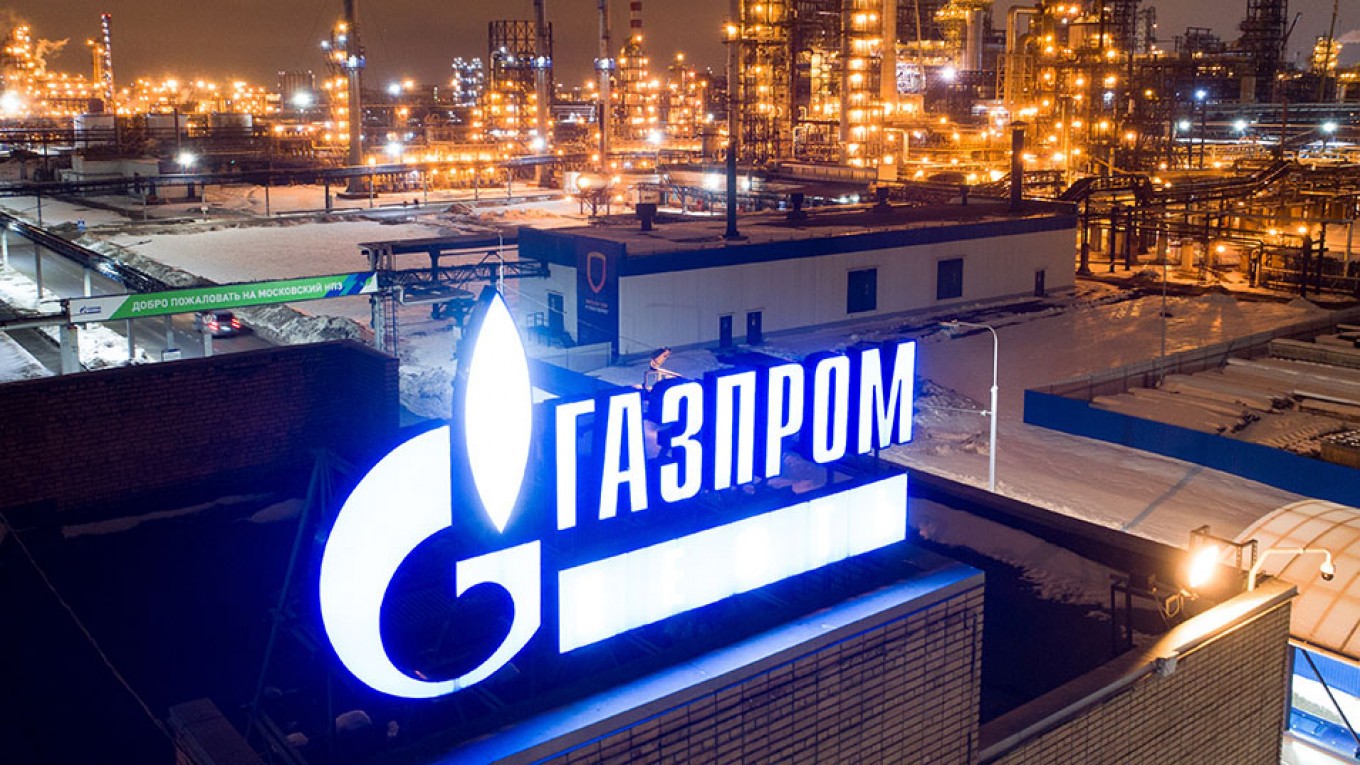Germany has concluded that Russia is artificially creating a gas shortage in the EU in the name of the earliest possible commissioning of Nord Stream 2.
There is no longer any doubt: next autumn, the European Union will enter the beginning of the heating season with extremely low stocks in its underground gas storage facilities (UGS). In Austria, for example, the Baumgarten hub, which is fundamentally important for Russian gas exports, is only one-third full, although the usual level for early August is around two-thirds. Half-empty, which is also extremely unusual, are the UGS facilities in Germany, which are largely controlled by Gazprom. Germany has the largest natural gas storage capacity in the entire EU.
Gazprom has cut off gas pumping to its European blue fuel storage facilities. Despite the agreement between Germany and the United States on Nord Stream 2, the price of gas is not falling.
On the contrary, prices have risen even more as Gazprom cut back in late July and partially stopped pumping gas to its European UGS facilities in the first days of August.
All this is happening against the background of a reduction in the supply of liquefied natural gas (LNG) in Europe by about 20% compared to last year, as major producers now prefer to supply to Asia, where gas prices due to heat and high electricity demand for air conditioning exceed European.
Over the last month, it has also changed that Gazprom’s specific pricing policy has finally attracted the attention not only of experts but also of the major German media, which previously focused mainly on the coronavirus, the election campaign that began in Germany. and then on the effects of the devastating floods.
“High prices: does Gazprom supply too little gas?” Asks the public legal information portal tagesschau.de. “Gazprom raises gas prices,” the price comparison portal check.24 informed its customers.
The economic publication Handelsblatt came to a similar conclusion: “Russia is deliberately restricting gas supplies to Europe and, by artificially creating shortages, Gazprom is providing its Nord Stream 2 project with an excellent starting position.”

There is no longer any doubt: next autumn, the European Union will enter the beginning of the heating season with extremely low stocks in its underground gas storage facilities (UGS). In Austria, for example, the Baumgarten hub, which is fundamentally important for Russian gas exports, is only one-third full, although the usual level for early August is around two-thirds. Half-empty, which is also extremely unusual, are the UGS facilities in Germany, which are largely controlled by Gazprom. Germany has the largest natural gas storage capacity in the entire EU.
Gazprom has cut off gas pumping to its European blue fuel storage facilities. Despite the agreement between Germany and the United States on Nord Stream 2, the price of gas is not falling.
On the contrary, prices have risen even more as Gazprom cut back in late July and partially stopped pumping gas to its European UGS facilities in the first days of August.
All this is happening against the background of a reduction in the supply of liquefied natural gas (LNG) in Europe by about 20% compared to last year, as major producers now prefer to supply to Asia, where gas prices due to heat and high electricity demand for air conditioning exceed European.
Over the last month, it has also changed that Gazprom’s specific pricing policy has finally attracted the attention not only of experts but also of the major German media, which previously focused mainly on the coronavirus, the election campaign that began in Germany. and then on the effects of the devastating floods.
“High prices: does Gazprom supply too little gas?” Asks the public legal information portal tagesschau.de. “Gazprom raises gas prices,” the price comparison portal check.24 informed its customers.
The economic publication Handelsblatt came to a similar conclusion: “Russia is deliberately restricting gas supplies to Europe and, by artificially creating shortages, Gazprom is providing its Nord Stream 2 project with an excellent starting position.”

Ultimately, “it is difficult to predict when and how much gas will flow under what (pre) conditions,” warn experts from the Berlin Science and Policy Foundation (SWP), a leading German research institute that advises both the German government and the EU. on foreign policy issues. In an article published in German and English in late July following the agreement between Berlin and Washington on Nord Stream 2, SWP experts warned that a theoretical permit for the pipeline could not be obtained until February 2022.
In addition, it is still unclear who will certify the new pipeline, as the Norwegian company Det Norske Veritas (DNV) withdrew from the project in January due to US sanctions, recalled by SWP. However, they acknowledge that the tense market situation could facilitate the rapid technical certification of Nord Stream 2. In other words, it is possible that Gazprom’s gambling game with the half-empty UGS will be crowned with success and the EU, under the pressure of circumstances (and Moscow), will urgently give the “green light” to the two new pipes under the Baltic Sea.
In short, the European gas market faces at least a few months of extreme uncertainty. SWP experts predict that “security of supply could become an important issue this fall and winter.” This means that the EU will automatically rekindle the discussion on energy cooperation with Russia, the degree of dependence on Russian gas and, most likely, whether it was a strategic mistake to give Gazprom control over particularly large facilities. for gas storage in Germany.
“Some people who know Gazprom well have begun to doubt whether the management of this generation-changing concern in recent years is fully aware of the possible political consequences of one or another of its actions,” Heiko Lohmann told interview for DW. According to him, in the past, Gazprom’s Western European partners have tirelessly repeated the mantra of the unconditional reliability of the Russian supplier.
Now, notes the German gas market expert in Germany and the EU, some of his interlocutors are left with the impression that not everyone in the Russian company is an unconditional supporter of long-standing mutual obligations, and this creates the impression that new risks have arisen.

